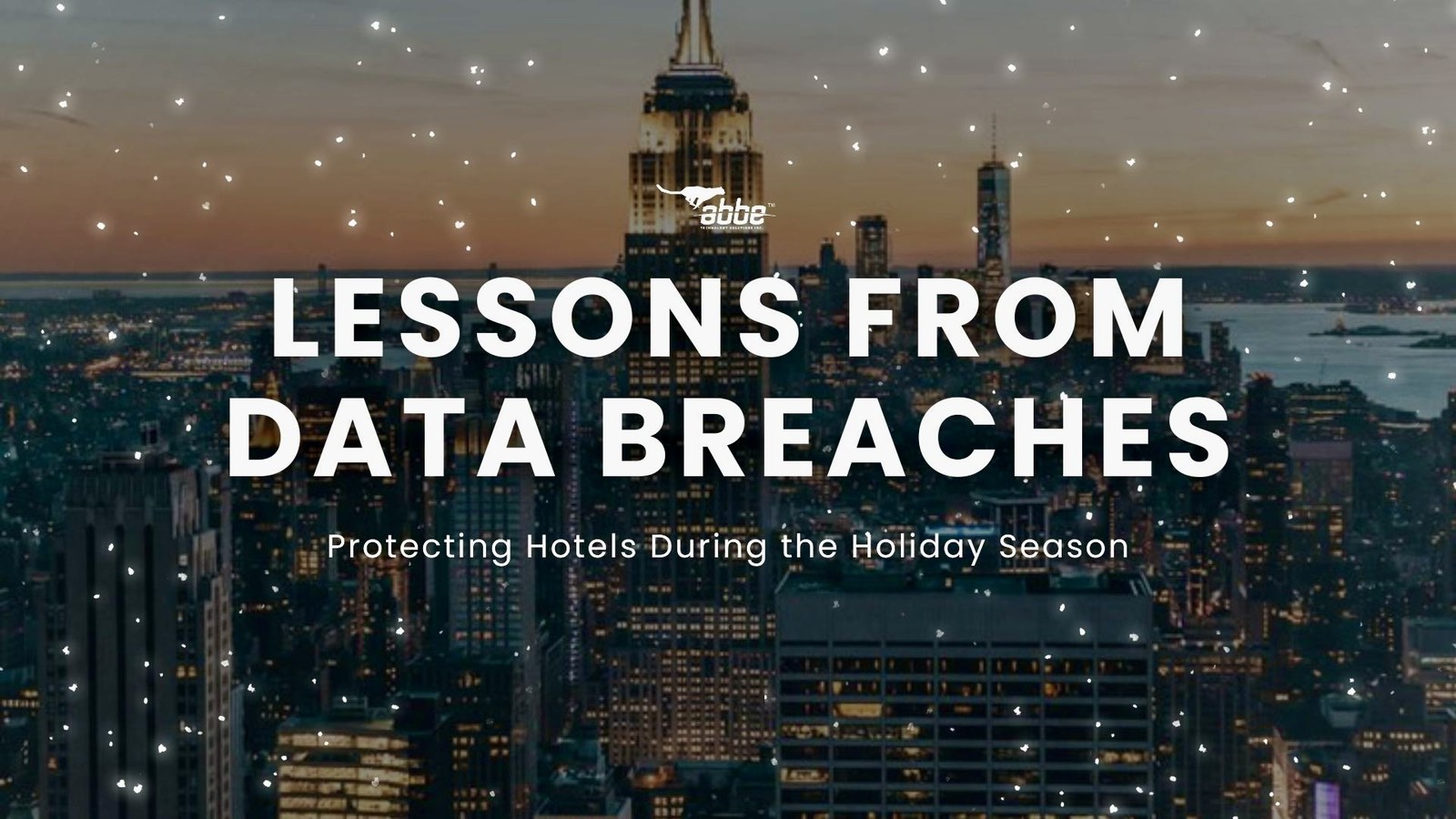The hospitality industry has long been a prime target for cybercriminals, given the wealth of personal and financial data it handles. With the holiday season approaching—a peak time for travel and reservations—hotels must reflect on past data breaches to ensure their systems are robust and their guests’ information is secure.
1. Recognize the Industry’s Vulnerabilities
Hotels often process a high volume of transactions and collect extensive personal details, such as names, contact information, and payment card data. This centralization of sensitive information makes hotel systems attractive to cybercriminals, especially during busy periods like the holidays.
Key Risk Areas Include:
• Payment processing systems
• Reservation platforms
• Guest loyalty programs
• Third-party integrations (e.g., for travel bookings)
2. Learn from Past Mistakes
Data breaches in the hospitality sector have exposed vulnerabilities such as outdated software, weak internal controls, and insufficient network monitoring. Often, these breaches remain undetected for months or even years, amplifying the damage.
Lessons for Hoteliers:
• Conduct Regular Audits: Ensure all systems, especially those inherited from acquisitions or third-party vendors, are up-to-date and secure.
• Implement Strong Access Controls: Limit employee access to sensitive information and enforce multi-factor authentication (MFA) for critical systems.
• Monitor for Anomalies: Deploy advanced monitoring tools that can detect unusual activities, such as unauthorized access or data transfers.
3. Proactive Steps for Holiday Preparedness
The holiday season increases the risk of cyberattacks due to the surge in online bookings and in-person transactions. Hoteliers can take proactive measures to strengthen their defenses:
• Upgrade Payment Security: Use tokenization and end-to-end encryption to protect payment card data.
• Train Employees: Conduct regular cybersecurity training to help staff identify phishing attempts and respond to suspicious activities.
• Secure Guest Wi-Fi: Public Wi-Fi networks are a common weak point. Use secure configurations to prevent unauthorized access.
4. Be Transparent and Prepared to Respond
Even with robust defenses, no system is entirely immune to cyberattacks. Hotels should have an incident response plan to mitigate damage and maintain guest trust:
• Quickly Isolate Threats: Contain breaches immediately to prevent further exposure.
• Notify Affected Parties: Communicate transparently with guests and partners about the breach and the steps being taken to address it.
• Collaborate with Experts: Partner with cybersecurity firms to investigate and remediate issues effectively.
5. Build Long-Term Resilience
Investing in long-term cybersecurity measures is not just a necessity but a competitive advantage. Guests are more likely to choose brands they trust to safeguard their information.
Best Practices for Long-Term Security:
• Adopt Zero Trust Architecture to minimize access risks.
• Regularly test systems with penetration tests and ethical hacking.
• Stay updated with industry regulations and compliance standards to avoid legal repercussions.
Closing Thoughts
As the holidays bring increased demand, hotels must ensure they prioritize cybersecurity alongside guest satisfaction. Learning from past breaches and adopting a proactive approach will not only protect sensitive data but also reinforce trust and loyalty among guests during this festive season.
By taking these steps, the hospitality industry can turn potential vulnerabilities into opportunities for innovation and resilience.
